Jennifer Becton's Blog, page 64
December 7, 2010
Ebook Pricing Experiment: The Results
Exactly 30 days ago, I changed the price of Charlotte Collins on ebook from $4.95 to $2.99.
According to J. A. Konrath, $2.99 is the current market value of ebooks. You can read all the facts and figures on his blog. Honestly, I didn't believe him, and that's why I conducted my 30-day experiment.
After crunching the numbers, I discovered that I would have to sell 40 percent more ebooks in order to break even. In October, when the price was $4.95, Charlotte Collins sold 64 Kindle editions, a number I was extremely proud of. That meant I needed to sell 90 ebooks at $2.99. Frankly, I didn't think it was possible, but the results speak for themselves.
From November 8 to December 7, Charlotte Collins sold 157 Kindle editions. That's more than double my sales number from October.
Since I lowered my price, I've had surprising feedback from some readers. They accused me of devaluing my work. Well, as far as I'm concerned, the worth of my work is equal to what I earn for it. If you look back at Konrath's numbers, you'll see the staggeringly awful percentages that traditional authors earn from their books. Here's a summary:
8 percent of the cover price on mass market paperbacks6 percent of the cover price on trade paperbacks10-15 percent of the cover price on hardcover (based on sales numbers)25 percent of net sales receipts on ebook
I'll let you extrapolate the data on the paper copies, but let's say that my ebook was traditionally published and priced at $9.99. With Amazon's 70 percent royalty agreement, the publisher gets $7. The author gets 25 percent of that or a whopping $1.75. At $2.99, Charlotte Collins earns me about $2.09 per book. My price may be three times less than a traditionally published book, but I'm earning 20 percent more per book. So I'm not devaluing my work at all.
What makes me the most happy about the whole situation is that I have offered Charlotte Collins for sale at a very affordable price, which is important to me. I am a new author. I have no draw. I had no online platform or presence until August. It would be unfair of me to expect people to pay such inflated prices on an unknown author for an ebook, a product that is so clearly less expensive to produce than a paper book. (In fact, I think it's unfair to ask anyone to pay those prices on almost any author.) The low price benefits my readers in that they don't have to break the bank to read a book, and it benefits me because my sales numbers have improved.
So, lowering the price of my novel has been a win-win. And the price will not be going up on Charlotte Collins now or in the foreseeable future.

According to J. A. Konrath, $2.99 is the current market value of ebooks. You can read all the facts and figures on his blog. Honestly, I didn't believe him, and that's why I conducted my 30-day experiment.
After crunching the numbers, I discovered that I would have to sell 40 percent more ebooks in order to break even. In October, when the price was $4.95, Charlotte Collins sold 64 Kindle editions, a number I was extremely proud of. That meant I needed to sell 90 ebooks at $2.99. Frankly, I didn't think it was possible, but the results speak for themselves.
From November 8 to December 7, Charlotte Collins sold 157 Kindle editions. That's more than double my sales number from October.
Since I lowered my price, I've had surprising feedback from some readers. They accused me of devaluing my work. Well, as far as I'm concerned, the worth of my work is equal to what I earn for it. If you look back at Konrath's numbers, you'll see the staggeringly awful percentages that traditional authors earn from their books. Here's a summary:
8 percent of the cover price on mass market paperbacks6 percent of the cover price on trade paperbacks10-15 percent of the cover price on hardcover (based on sales numbers)25 percent of net sales receipts on ebook
I'll let you extrapolate the data on the paper copies, but let's say that my ebook was traditionally published and priced at $9.99. With Amazon's 70 percent royalty agreement, the publisher gets $7. The author gets 25 percent of that or a whopping $1.75. At $2.99, Charlotte Collins earns me about $2.09 per book. My price may be three times less than a traditionally published book, but I'm earning 20 percent more per book. So I'm not devaluing my work at all.
What makes me the most happy about the whole situation is that I have offered Charlotte Collins for sale at a very affordable price, which is important to me. I am a new author. I have no draw. I had no online platform or presence until August. It would be unfair of me to expect people to pay such inflated prices on an unknown author for an ebook, a product that is so clearly less expensive to produce than a paper book. (In fact, I think it's unfair to ask anyone to pay those prices on almost any author.) The low price benefits my readers in that they don't have to break the bank to read a book, and it benefits me because my sales numbers have improved.
So, lowering the price of my novel has been a win-win. And the price will not be going up on Charlotte Collins now or in the foreseeable future.
Published on December 07, 2010 19:49
December 6, 2010
Austen Experience: Austenbook
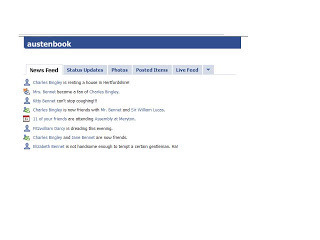 Please visit http://www.much-ado.net/austenbook/ for the full
Please visit http://www.much-ado.net/austenbook/ for the full Austenbook experience. Hilarious!Today, my friend at JASNA-NY posted a link to this article in the Wall Street Journal. You know, somehow in all my WSJ reading, I missed it. Har. I don't have a subscription.
The article attempts to deconstruct the reasons behind Jane Austen's continuing popularity, a subject that has a great interest for me. According to those interviewed, Austen's appeal, especially to the young, comes from our similar situations.
Austen's themes are universal. People today are still interested in finding Mr. or Miss Right, and they seek to become financially stable, though today women do have other means of providing for themselves monetarily than by marrying well, becoming a governess, or walking the streets. Modern women still deal with loony parents and dating dilemmas, and we also contend with certain social mores that affect our behavior.
Sure, things aren't the same as they used to be, but still, we find ourselves doing the same kind of social networking that Austen wrote about. They wrote letters; we text. They had balls; we have clubs. They read about social happenings in newspapers; we post on Facebook. Technology may have changed, but we are still trying to reach out to one another.
Motivated by a love for all things Austen, communities have formed around the web. Along with JASNA chapters and Austen book clubs, you can find her online. There are fan fiction websites, where writers play with Austen's characters and share their stories with each other. You can find the full texts of her novels. You can even find Auten's version of Facebook: Austenbook.
I think there is a bit more to the Austen Experience, but the WSJ has it right: Jane Austen writes about universal, timeless themes, and she's here to stay!
Published on December 06, 2010 11:09
August 19, 2010
Writing Fear Free: Research
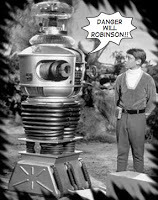 Research too can become a stumbling
Research too can become a stumblingblock for the aspiring novelist.
You must find the balance between
adequate research and overdoing it.Last week, I ended my Writing Fear Free post with the hint that after doing (or not doing) your outline, you are ready to start writing.
Well, yes and no.
Research is a vital aspect of the novel writing process, and it must be done if you aspire to a logical, believable plot, but beware. Information gathering can become a stumbling block to completing your...
Published on August 19, 2010 09:35
August 18, 2010
Hearing Your Stories
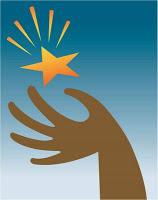 Publishing Charlotte Collins has been an interesting adventure, and it has had lots of unexpected aspects. I've already described how much I'm enjoying marketing my book, and I must admit that I'm even enjoying blogging, which I didn't anticipate either. I know that sounds odd given that I write and edit for a living, but I worried that a blog would be one thing too many in that category and I'd start to resent it. So far, that is not the case, and I'm even thinking of upgrading my blog to a ...
Publishing Charlotte Collins has been an interesting adventure, and it has had lots of unexpected aspects. I've already described how much I'm enjoying marketing my book, and I must admit that I'm even enjoying blogging, which I didn't anticipate either. I know that sounds odd given that I write and edit for a living, but I worried that a blog would be one thing too many in that category and I'd start to resent it. So far, that is not the case, and I'm even thinking of upgrading my blog to a ...
Published on August 18, 2010 09:39
August 17, 2010
News and Gnus
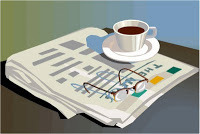 I just love words that sound alike. Homophones, right?
I just love words that sound alike. Homophones, right? Well, here is the news from self-publishing land:
The new proof of Charlotte Collins arrived today, and it was correctly cropped! Yay! It looks fabulous, even if I do say so myself.I am almost done with my final proofread of the book. So far, I have found nothing catastrophic. Double yay!I have my website and this blog (see right margin) set up to accept pre-orders of Charlotte Collins. Orders will be shipped on the book's release date...
Published on August 17, 2010 13:17
August 16, 2010
Blog Hopping
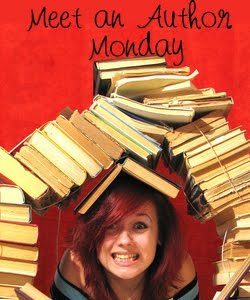 I counted on a lot of things when I decided to self-publish. I was sure it would be hard work, that my workdays would be long, and that I was making the right choice. What I didn't realize was how much I would enjoy the marketing. It has been really fun to learn more about social media, to go into new bookstores, and to meet new people.
I counted on a lot of things when I decided to self-publish. I was sure it would be hard work, that my workdays would be long, and that I was making the right choice. What I didn't realize was how much I would enjoy the marketing. It has been really fun to learn more about social media, to go into new bookstores, and to meet new people. Sure, I used Facebook, had a blog, and was a veteran of many discussion boards, mostly about horses. But I knew jack squat about Twitter, and I became aware o...
Published on August 16, 2010 08:34
August 13, 2010
Writing Fear Free: Outlines
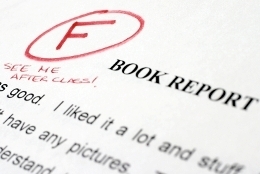 Confession time: I despise outlines.
Confession time: I despise outlines.Throughout shcool--er school--I did my level best never to write one, but I have made a great personal sacrifice and written two outlines to help you with yours.
How to Outline Your NovelTwo Strategies by Jennifer Becton
I. Sit at computer.
A. Contemplate the beauty and horror of the blank page.
B. Try to remember the rules for outlining from high school.
C. Ask self if you have to have an even number of sub-categories or if this was some evil rul...
Published on August 13, 2010 08:54
August 12, 2010
Why the World Needs Editors
Speaking of errors, here's one for the epic fail list.
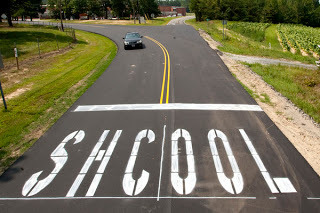 Picture from Yahoo News.Their error was apparently corrected PDQ, but in this day of digital cameras and the Internet, such glories last forever.
Picture from Yahoo News.Their error was apparently corrected PDQ, but in this day of digital cameras and the Internet, such glories last forever.
As an editor, this is just the kind of thing I love to spot. Signage is replete with errors. For example, I've ridden through a town called Lesslie, but the residents couldn't seem to decide if it's spelled with one S or two. Every sign was different. Or the radio commercial that asked, "Does a tr...
 Picture from Yahoo News.Their error was apparently corrected PDQ, but in this day of digital cameras and the Internet, such glories last forever.
Picture from Yahoo News.Their error was apparently corrected PDQ, but in this day of digital cameras and the Internet, such glories last forever.As an editor, this is just the kind of thing I love to spot. Signage is replete with errors. For example, I've ridden through a town called Lesslie, but the residents couldn't seem to decide if it's spelled with one S or two. Every sign was different. Or the radio commercial that asked, "Does a tr...
Published on August 12, 2010 08:34
August 11, 2010
Errors: Those Dreadful Things
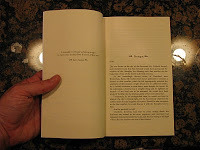 Charlotte Collins in the flesh. Sort of.Now that I am finally back at work after a week of helping my ninety-one-year-old grandmother through a very difficult shoulder surgery, I am able to see Charlotte Collins in book form.
Charlotte Collins in the flesh. Sort of.Now that I am finally back at work after a week of helping my ninety-one-year-old grandmother through a very difficult shoulder surgery, I am able to see Charlotte Collins in book form.I cannot describe the sensation of actually holding my book in my hands. It is at once wonderful and scary. This sheaf of paper is completely my product. The text, the interior design, the cover design, the mistakes...they are all mine. As an independent author and...
Published on August 11, 2010 08:59
August 9, 2010
Writing Fear Free: Mise en Place
In the culinary world, mise en place means getting everything ready to cook: gathering the ingredients, pots, pans, knives, and the other accoutrements necessary for preparing a gourmet meal. In plain old French, it means "putting in place." And in my world, it means getting everything set up for writing: choosing your venue, your medium for writing, your inspirational beverages, and even the time of day best suited for creating your future bestseller.
But getting started on a novel is almost ...
But getting started on a novel is almost ...
Published on August 09, 2010 06:22



